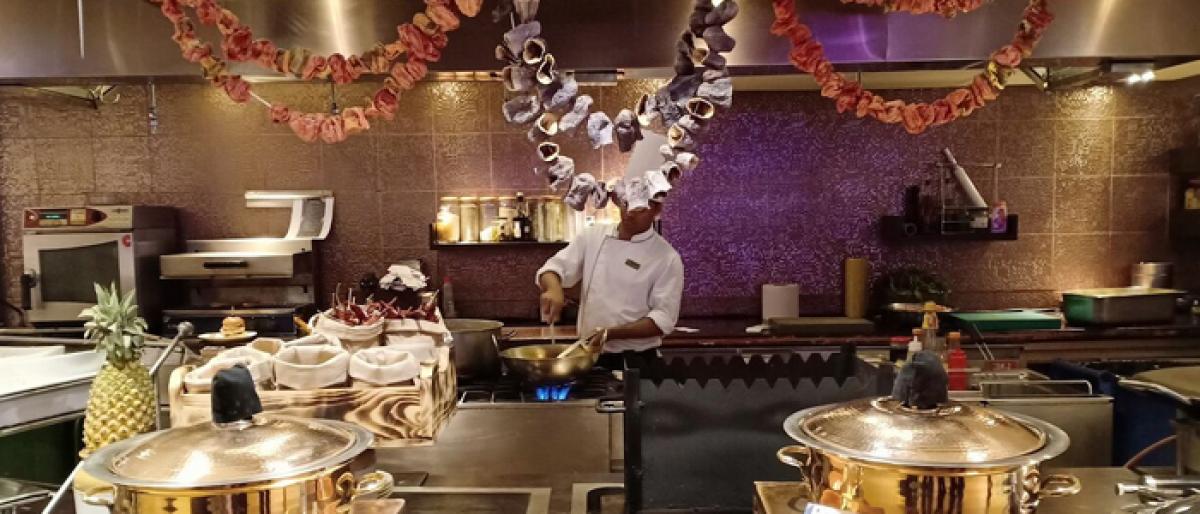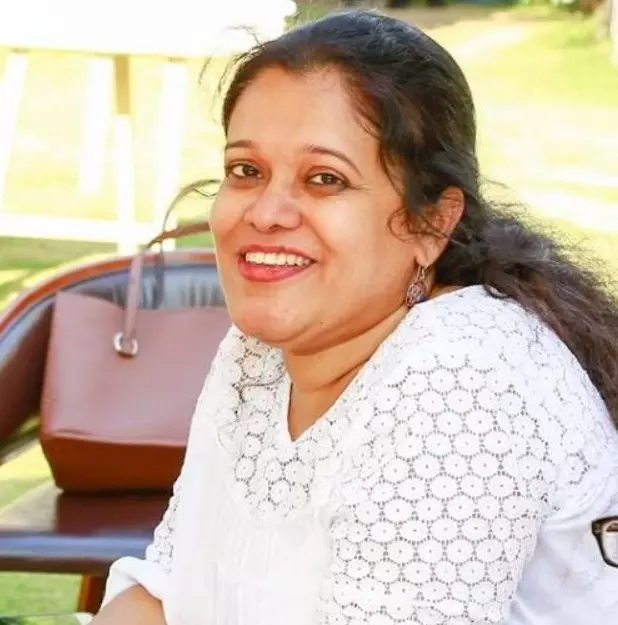Live
- Governor Jishnu Dev Varma to Attend ABVP 43rd State Conference in Siddipet Today
- Transgenders to Begin Traffic Assistant Duties in Hyderabad from Tomorrow
- Police Security Tightened at Allu Arjun’s Residence After OU JAC Vandalism
- ED Likely to Issue Notices to BRS Working President KTR Today
- CM Chandrababu Naidu to Attend Christmas Celebrations in Amaravati Today
- CM Revanth to Review Projects with Senior Officials Today
- Fix Ozone Layer Depletion
- Harish Rao to Visit Medak Today for Centenary Celebrations
- Irregularities in TUDA under vigilance scanner
- ‘Pushpa-2’ row: Celebs & politicos fail to act fairly
Just In

We too have halwa in our desserts We even have what you call the jilebi Wonder if it travelled from India to Turkey or the other way, wonders aloud Chef Osman avu, who also teaches Gastronomy at School of Bolu Tourism Management and Hospitality, Turkey
“We too have halwa in our desserts. We even have what you call the jilebi. Wonder if it travelled from India to Turkey or the other way,” wonders aloud Chef Osman Çavuş, who also teaches Gastronomy at School of Bolu Tourism Management and Hospitality, Turkey.
Chef Osman came all the way from Turkey to present the culinary richness of his country at Radisson Blu Hotel in association with Turkish Airlines and Consulate General, Turkey. And with his, he brought along, dry fermented meat and the dried capsicum and aubergine, unique to the cuisine. However, for the lamb roast, he had to make do with the local lamb, which he says is too lean for his liking.
“What we feed the lamb and the amount of fat is very important for a well-made lamb dish. In fact, for special occasions we go to the farm a few weeks ahead and prescribe a set diet of special grass to ensure the lamb is well fed,” he shares.
“For the whole lamb roast, the lamb has to be braised for a long time, and if it’s not having enough fat it shrinks with so much cooking. I had to be very careful to ensure the dish is as near to its original as possible,” he adds.
The chef also brought special flour to make the famous Baklawa and Turkish rice to make Piring Pilavi (also known as pilaf – the signature rice preparation is made in a variety of recipes using butter and olive oil. Turkish people know their pilaf and are particular about it. It cannot be overcooked or undercooked. The rice cannot stick together. The method is followed religiously to ensure the perfect pilaf. It is famously said that if a woman gets her pilaf right, she can cook anything.)
Chef Osman is ensuring that food connoisseurs get to taste the best of dishes from Turkey. Lamb is evidently the main meat in the country. In addition, the Turkish kitchen uses a lot of tomatoes, beans and for spice, it’s usually the chillies. At the Chill Terrace that has been transformed to include elements of Central Asia in terms of décor and music, one also got to taste the quintessentially Turkish Osmanli Goveci, Taze Fasulye – Beans with tomato, Keshek (lamb with mashed white beans and chickpea), Dugun Conbasi – the lamb and yoghurt soup made during the weddings – the food promotion is truly an unusual experience of delicious food. He is also recreating the legendary desserts of the land – homemade Lokum, Kunefa, Muhallebi, Sutlec (baked rice pudding) among others.
Fine cooking methods that retain the flavours of meat and veggies laced with butter, cheese, olive oil vouching for the influences from all around, Turkish cuisine is an amalgamation of various tastes from different regions. Chef Osman Çavuş is giving the whirlwind tour of the same during on the dinner buffet during the Turkish Food Festival that will culminate on Republic Day of Turkey on October 29.

© 2024 Hyderabad Media House Limited/The Hans India. All rights reserved. Powered by hocalwire.com







